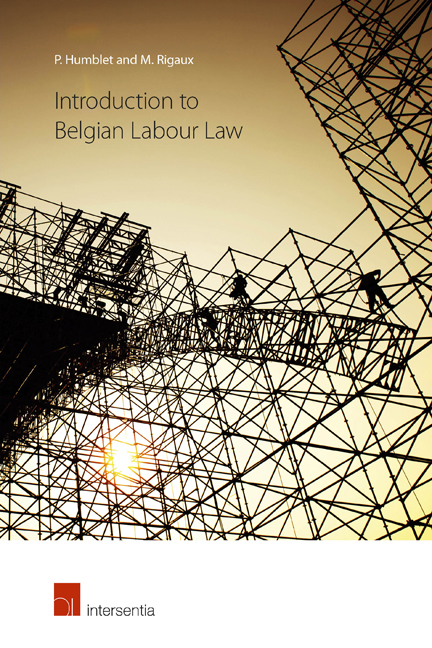Book contents
- Frontmatter
- Preface
- Contents
- List of Abbreviations
- PART I EMPLOYMENT LAW
- I THE CONTRACT OF EMPLOYMENT
- II CONCLUDING THE CONTRACT
- Chapter 1 Recruitment
- Chapter 2 Principles of Contract Law in the Context of the Employment Contract
- Chapter 3 Conditions of Validity
- Chapter 4 Formal Requirements
- Chapter 5 Types of Employment Contracts
- Chapter 6 The Content of the Contract
- III EMPLOYMENT
- IV TERMINATION OF EMPLOYMENT
- V SPECIAL AND DEVIATING TYPES OF EMPLOYMENT CONTRACTS
- PART II INDUSTRIAL RELATIONS LAW
- I FREEDOM OF ASSOCIATION
- II TRADE UNIONS AND EMPLOYERS’ ASSOCIATIONS
- III INSTRUMENTS FOR SOCIAL DIALOGUE
- IV FUNDS FOR SOCIAL SECURITY
- V INDUSTRIAL ACTION
- In Cauda
- General Bibliography
- E-addresses
Chapter 2 - Principles of Contract Law in the Context of the Employment Contract
from II - CONCLUDING THE CONTRACT
Published online by Cambridge University Press: 13 December 2017
- Frontmatter
- Preface
- Contents
- List of Abbreviations
- PART I EMPLOYMENT LAW
- I THE CONTRACT OF EMPLOYMENT
- II CONCLUDING THE CONTRACT
- Chapter 1 Recruitment
- Chapter 2 Principles of Contract Law in the Context of the Employment Contract
- Chapter 3 Conditions of Validity
- Chapter 4 Formal Requirements
- Chapter 5 Types of Employment Contracts
- Chapter 6 The Content of the Contract
- III EMPLOYMENT
- IV TERMINATION OF EMPLOYMENT
- V SPECIAL AND DEVIATING TYPES OF EMPLOYMENT CONTRACTS
- PART II INDUSTRIAL RELATIONS LAW
- I FREEDOM OF ASSOCIATION
- II TRADE UNIONS AND EMPLOYERS’ ASSOCIATIONS
- III INSTRUMENTS FOR SOCIAL DIALOGUE
- IV FUNDS FOR SOCIAL SECURITY
- V INDUSTRIAL ACTION
- In Cauda
- General Bibliography
- E-addresses
Summary
SECTION 1. AUTONOMY OF WILL
Parties are entirely free to give a contract the content they want. In principle this also applies to the individual contract of employment.
However, whereas in the past the individual employment relationship was almost completely regulated by the parties, it is now the subject of extensive and specific regulations in legislation, collective labour agreements and work rules.
SECTION 2. CONSENSUALISM
Consensualism presupposes that prior to the conclusion of the agreement mere consent by the parties suffices. In the context of the employment contract this principle is given another content. Consensualism does not play a role in fixed term employment contracts, replacement contracts etc. In all these cases the law imposes certain formal requirements. The aim of these formal requirements is not only to make it easier to produce evidence, but also to protect the employee.
SECTION 3. THE BINDING EFFECT OF THE CONTRACT
The principle of the binding effect of the contract (Article 1134 Civil Code) also applies to employment contract law. Once the contract has been concluded neither of the parties may make any changes.
SECTION 4. IMPLEMENTATION OF THE AGREEMENT BONA FIDE
The employment contract is expected to be implemented in good faith.
- Type
- Chapter
- Information
- Introduction to Belgian Labour Law , pp. 21 - 22Publisher: IntersentiaPrint publication year: 2016
- 1
- Cited by



